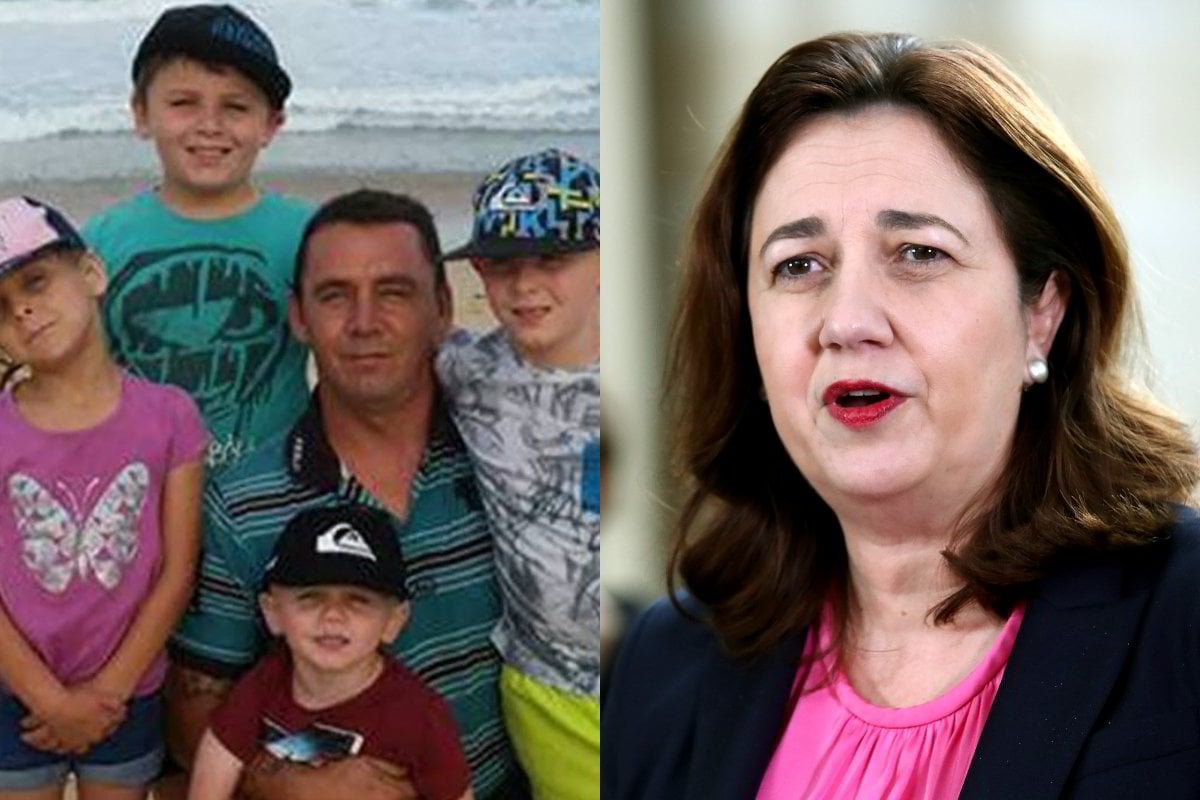
Queensland border rules slammed as "loopy", as terminally ill father is denied chance to say goodbye to his four children.
NSW Health Minister Brad Hazzard has described Queensland's tough border stance as "loopy", as the story of a father-of-four who is dying of terminal cancer highlights a lack of compassion.
Mark Keans, 39, is battling cancer from his hospital bed in Brisbane and has been told it is unlikely he will survive past Christmas.
Despite pleas from his family to allow them to cross the NSW-Queensland border to say their goodbyes, the Queensland government has ruled just one of Keans' four young children will be allowed to enter the state.
"Just let us see our son, that's all we ask. We just want to see him," Kean's father, Bruce Langvorne, told 9News.
He told the Today show on Thursday morning it was impossible to pick one child to visit their father.
A family have been told that they can select only one of four children to go and visit their dying father in Queensland. #9Today pic.twitter.com/ANnc4plmkZ
— The Today Show (@TheTodayShow) September 9, 2020


Top Comments